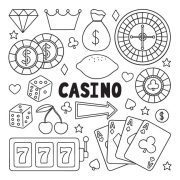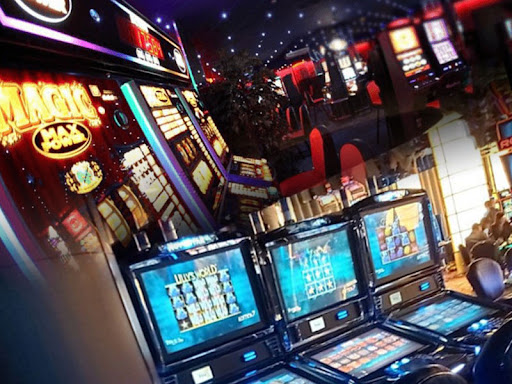Understanding the Blockchain Boom in Online Gambling
The global gambling industry is undergoing one of its most transformative shifts since the arrival of the internet: the rise of crypto casinos. In Denmark—a country known for both strict regulatory control and digital innovation—this transformation is creating both opportunities and legal grey zones.
Players across Denmark are increasingly exploring cryptocurrency gambling for its fast payments, privacy features, and global accessibility. But many are asking the same essential question: Are crypto casinos even legal in Denmark?
This article aims to unpack the facts, reveal hidden truths, and provide expert insight into the growing world of crypto gambling. From legal interpretations to technical innovations, we’ll take a deep dive into a subject that many players only partially understand.
In the process, we’ll touch on the relationship between casino uden dansk licens (casinos without a Danish license) and the crypto ecosystem—because where there is innovation, regulation is rarely far behind.
What Is a Crypto Casino?
Definitions and Core Features
A crypto casino is an online gambling platform that accepts cryptocurrencies like:
- Bitcoin (BTC)
- Ethereum (ETH)
- Litecoin (LTC)
- Tether (USDT)
- Dogecoin (DOGE)
These platforms either operate fully on blockchain technology (decentralized casinos) or simply integrate crypto payments with traditional gambling software.
The core difference from standard casinos lies in:
- Payment methods: No bank accounts or credit cards required
- Anonymity: Often no ID verification, especially at foreign-licensed casinos
- Transparency: Some use provably fair algorithms via blockchain
- Speed: Near-instant deposits and withdrawals
Two Categories: Hybrid vs. Pure Blockchain Casinos
- Hybrid Crypto Casinos: Use regular game software (e.g., slots, live dealers) and just accept crypto as payment. These are the majority.
- Blockchain Casinos: Run fully on smart contracts and decentralized apps (dApps). These are cutting-edge and less common.
Understanding the type of casino you’re dealing with is crucial—especially in relation to Danish law.
Danish Gambling Law: A Short Primer
Who Regulates Gambling in Denmark?
In Denmark, the Spillemyndigheden (Danish Gambling Authority) oversees all licensed gambling activity. This includes:
- Licensing casinos
- Enforcing responsible gambling measures
- Monitoring financial transactions
- Ensuring player protection and fairness
To operate legally in Denmark, a casino must hold a Danish license, adhere to strict anti-money laundering rules, integrate with ROFUS, and require login via MitID (formerly NemID).
Crypto: Not Yet Recognized in Licensing Framework
Currently, the Danish Gambling Authority does not explicitly support or recognize cryptocurrency gambling. The official regulations do not offer a framework for:
- Accepting crypto payments legally within the Danish licensing scheme
- Auditing smart contracts on blockchain casinos
- Verifying identity through wallet addresses or decentralized credentials
This leaves a legal vacuum where crypto casinos operate outside Danish law—neither explicitly banned nor permitted.
Are Crypto Casinos Legal in Denmark?
The Short Answer: It’s Complicated
As of 2025, crypto casinos are not illegal for players in Denmark. However:
- Operating a crypto casino without a Danish license targeting Danes is illegal
- Playing on foreign-based crypto casinos is not prosecuted, but offers no legal protection
- Promoting unlicensed casinos can be against Danish marketing laws
So while Danish residents can access casino uden dansk licens, including those accepting crypto, they do so at their own risk and without any guarantee of fairness or legal recourse.
What Makes It a “Grey Zone”?
- Jurisdictional Ambiguity: Most crypto casinos are licensed in places like Curaçao or Anjouan, not Denmark.
- Financial Opacity: Crypto is harder to trace than fiat, raising concerns around money laundering.
- Lack of Player Protection: Danish laws cannot enforce disputes or protect player funds on unlicensed sites.
That said, no Danish player has been fined or prosecuted simply for using a crypto casino. The legal focus remains on operators—not individuals.
Why Danish Players Choose Crypto Casinos
1. Privacy and Anonymity
The appeal of anonymous gambling is undeniable in a country where every regulated casino requires MitID. With crypto, players can:
- Sign up with just an email address
- Deposit without linking a bank account
- Avoid national exclusion lists like ROFUS
This makes crypto casinos especially attractive to privacy-conscious individuals.
2. Faster and Cheaper Transactions
- Deposits: Instant or within minutes
- Withdrawals: No delays, no bank processing times
- Fees: Lower than credit cards or e-wallets, especially with low-fee coins like Litecoin
Compared to Danish-licensed casinos where withdrawals may take 1–3 days, the difference is stark.
3. Access to Global Bonuses and Games
Crypto casinos often offer:
- Huge welcome packages (sometimes 5 BTC or more)
- No wagering bonuses
- Unique blockchain games unavailable on Danish platforms
For the adventurous gambler, the international crypto scene is full of fresh and generous opportunities.
The Risks of Crypto Gambling in Denmark
1. No Legal Protection
If something goes wrong—a locked account, delayed withdrawal, or unfair game—there is no Danish authority to file a complaint with. You are at the mercy of the operator’s reputation.
2. Volatility of Crypto Assets
Imagine you deposit €100 in Bitcoin. By the time you want to cash out, the value has dropped by 30%. This isn’t gambling on the casino—it’s gambling on the currency itself.
Volatility adds an extra layer of risk to what’s already a risk-driven activity.
3. Limited Responsible Gambling Tools
Most Danish-licensed casinos must integrate:
- Time and deposit limits
- Reality checks
- Automatic ROFUS blocking
- Staff training for addiction issues
These tools are usually absent on foreign crypto platforms. You are in full control—and that’s not always a good thing.
Expert Opinions: Is Crypto Gambling the Future?
From a Tech Perspective
Blockchain technology enables:
- Trustless gaming: Provably fair algorithms prove outcomes weren’t manipulated
- Decentralized governance: Community-run casinos (DAOs) could replace corporate operators
- True player ownership: Skins, tokens, and NFTs with real-world value
The technology is here. The question is whether regulation will catch up—or resist.
From a Legal Perspective
European regulators, including Denmark, are grappling with how to treat crypto:
- The MiCA (Markets in Crypto-Assets) regulation at EU level will apply from 2025, setting rules for crypto platforms
- AMLD6 (Anti-Money Laundering Directive 6) includes crypto
- Danish tax authorities already expect declarations of crypto winnings
So even if crypto casinos remain unlicensed, they will increasingly fall under financial supervision.
How to Identify a Trustworthy Crypto Casino
If you decide to explore the world of crypto gambling, use this expert checklist:
- Reputation: Search player reviews on forums like Bitcointalk, Trustpilot, or Reddit
- License: Prefer platforms licensed in at least one jurisdiction (Curaçao, Anjouan, etc.)
- Provably Fair: Look for a fairness audit system or smart contract logic
- Customer Support: Real-time chat and responsive service is a good sign
- Withdrawal Speed: Top crypto casinos process withdrawals within 10–30 minutes
Bonus tip: Stick to casinos that display their wallet addresses publicly for transparency.
Can Denmark Integrate Crypto Into Its Gambling System?
This is the big question. Some experts argue that:
- A sandbox license for crypto operators would attract innovation without endangering consumers
- Denmark could lead the EU in safe crypto gambling frameworks
- Integration with MitID could be optional for small-stake play
Others believe the current system is already too tight and will resist change. Crypto gambling may continue to grow outside the legal Danish market.
But make no mistake—players are already making the choice. If regulation doesn’t adapt, it risks irrelevance for a segment of the market.
Alternatives: Playing Crypto Legally in Denmark
Currently, no Danish-licensed casinos accept crypto. But some hybrid solutions are emerging:
- Gift card platforms: Buy casino credits using Bitcoin, indirectly funding play
- Payment intermediaries: Services that convert crypto to fiat behind the scenes
- DeFi betting markets: Decentralized prediction markets (e.g., Augur, Polymarket) are technically not casinos, and may offer legal loopholes
These solutions aren’t ideal, but they hint at what the future may hold.
Final Thoughts: A Market on the Edge
Crypto casinos sit at the edge of legality, technology, and financial independence. In Denmark, where consumer protection meets digital sophistication, the challenge is not whether crypto gambling exists—it’s how the system will respond to it.
The average Danish player is more educated, more security-conscious, and more tech-savvy than ever before. They don’t just want fast payouts—they want freedom, transparency, and control.
So, are crypto casinos legal in Denmark?
Not exactly. But they are happening. And like all disruptive innovations, they are forcing regulators, players, and platforms to rethink what online gambling can and should be.
If you’re considering exploring this world, do so with knowledge, caution, and curiosity. The crypto casino revolution is here—and it’s just beginning.

